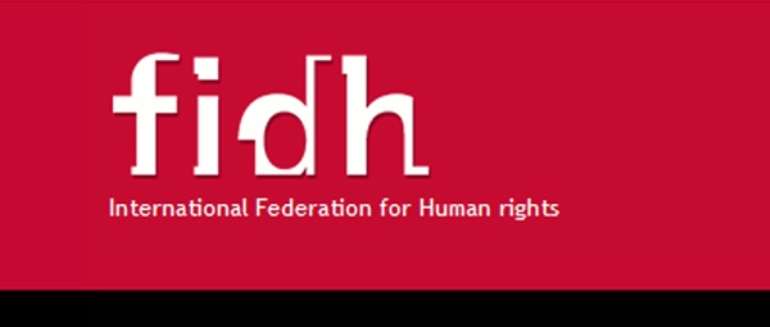CAMEROON: Homophobic Climate Maintained by State Inaction: Support and Protection Needed for the Defenders of the Rights of LGBTI People / Preliminary conclusions of a fact-finding mission on the situation of LGBTI people's rights defenders

PARIS, France, February 4, 2014/African Press Organization (APO)/ -- The Observatory for the Protection of Human Rights Defenders, a joint programme of FIDH and OMCT, outlines the preliminary conclusions of a mission conducted in Cameroon from January 7 to 16, 2014 on the situation of lesbian, gay, bisexual, transgender and intersex (LGBTI) people's rights defenders.
The testimonies and analyses gathered during the mission reflected an environment marked by overall insecurity and intimidation against health rights and LGBTI rights defenders, in a context of criminalisation of homosexuality. The mission delegates were able to meet notably with representatives of human rights organisations, LGBTI people, journalists, lawyers, sexual health workers, church representatives, national authorities and institutions as well as diplomatic missions.
To date, Cameroon is the country with the highest number of persons being prosecuted, sentenced and imprisoned for “consensual sexual relations with a person of the same sex” (Article 347bis of the Penal Code). Despite a moratorium promised by President Biya on arrests carried out in application of Article 347bis of the Penal Code, at least 15 people (men and women) are now being held in Cameroonian prisons because of their real or suspected sexual orientation.
Between 2012 and 2013, many defenders have faced targeted acts of harassment because of their support for LGBTI persons. According to the mission delegates, “the Cameroonian authorities are showing no perceptible signs of willingness to stop these persecutions. According to the information received, none of the persons responsible for blackmail or extortion has ever been arrested or troubled, and the complaints filed by the defenders have all been ignored. This is especially alarming since law enforcement officers may have been involved in several of these cases”.
On the very issue of the investigation into the death of Eric Ohena Lembembe, Executive Director of the Cameroonian Foundation for AIDS (CAMFAIDS) and journalist who actively defended LGBTI rights, the mission noted that the only procedural act carried out by the investigating judge up to now was a “summons to witness … to be accused and questioned about charges of aggravated theft”, notified by a bailiff on October 17, 2013 to six persons who were close to the victim. “The inertia of the Cameroonian authorities encourages a climate of impunity for the perpetrators of crimes and persecution against LGBTI people, and contributes to the stigmatisation and discrimination of these people and of the defenders of their rights”, the mission delegates stated.
In addition to the repression described above, institutions responsible for guaranteeing respect for people's rights suffer from lack of independence and resources. In particular, the National Commission on Human Rights and Freedoms (Commission nationale des droits de l'Homme et des libertés – CNDHL) does not have the authority nor the independence needed to protect Cameroonian citizens, especially the most vulnerable ones, including LGBTI people. Furthermore, the legal aid system is ineffective. The result is that, in fact, the most vulnerable people do not have access to legal services nor to a fair trial. This situation is all the more serious for people suspected of homosexuality as only three or four lawyers are willing to represent them before the police and judicial authorities, which in turn increases the stigmatisation of those lawyers.
“In this context, LGBTI rights defenders are working in an atmosphere ridden with fear and insecurity due to the lack of sustainable institutional support for identity-based organisations. Insecurity pushes the organisations to “hide” themselves behind activities to combat AIDS in favour of populations most at risk, which are covered in the National HIV/AIDS Strategic Plan”, the mission deplored.
The Observatory will publish in the coming months a comprehensive mission report on the situation of LGBTI rights defenders in Cameroon with specific recommendations to the national authorities, non-State actors, international organisations, diplomatic representations and to national, regional and international human rights protection mechanisms.
